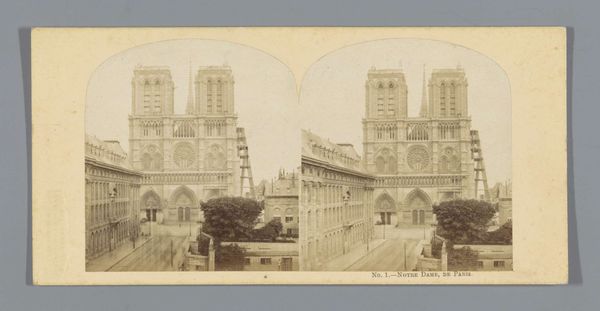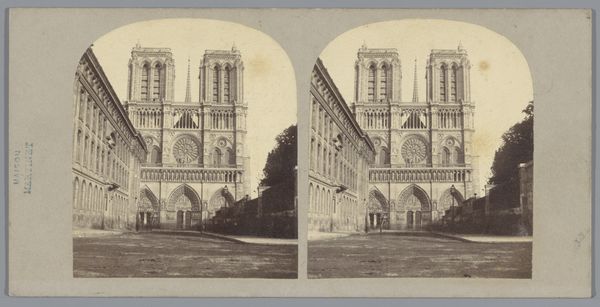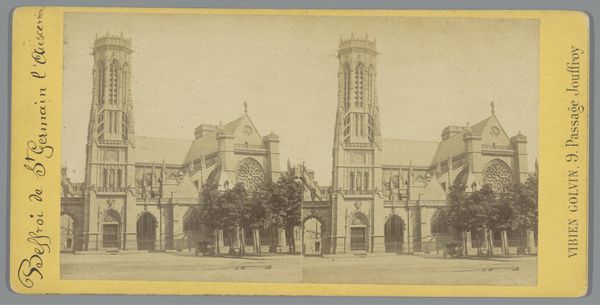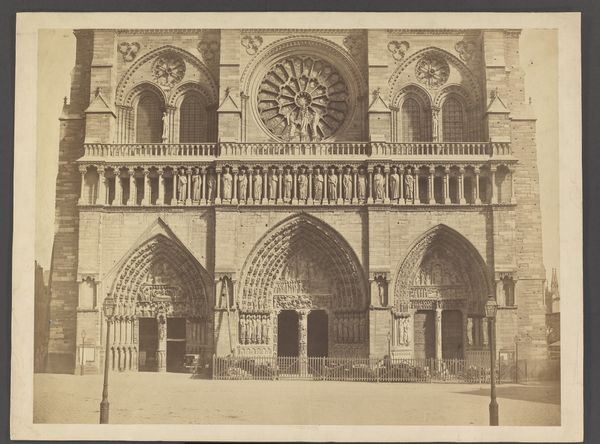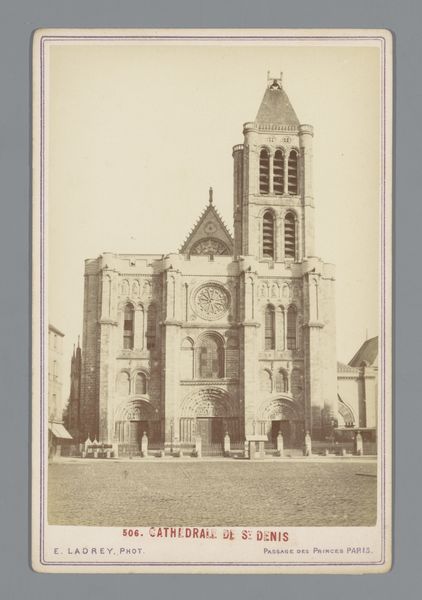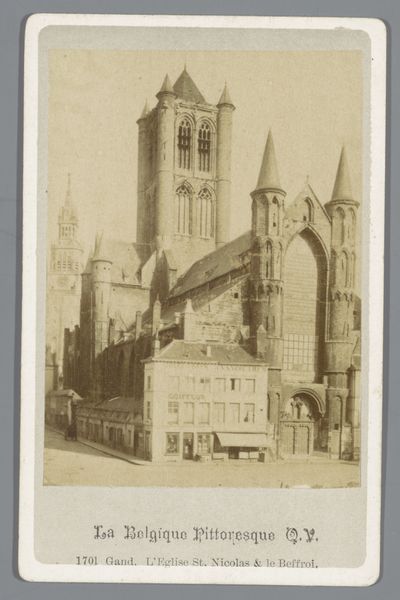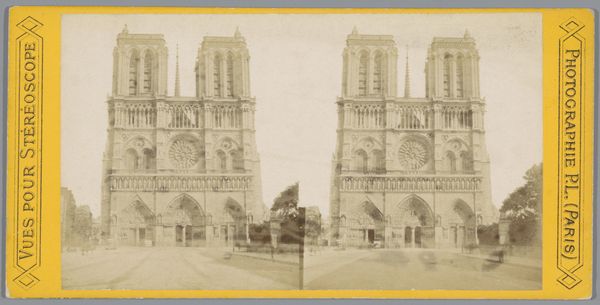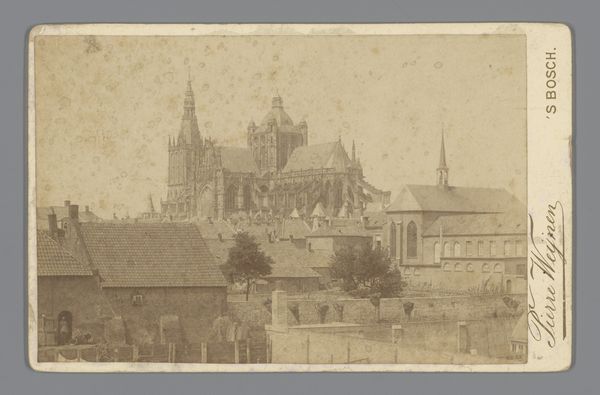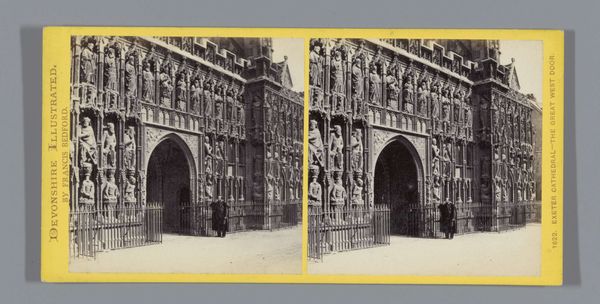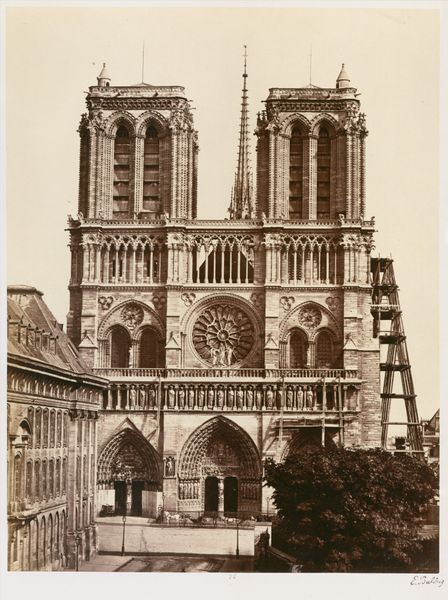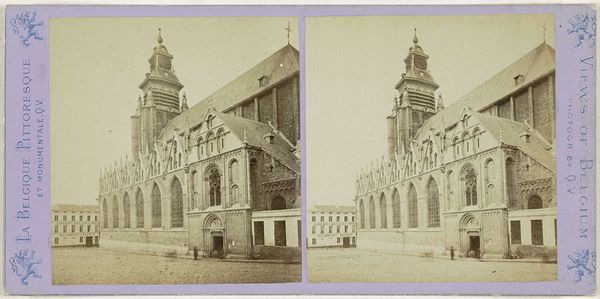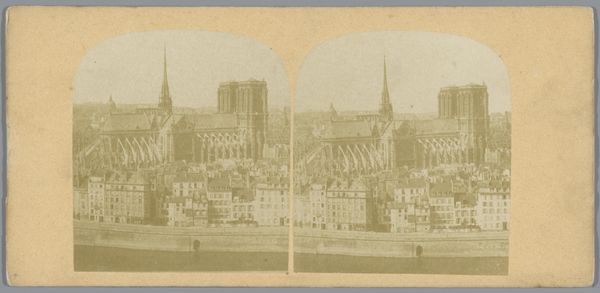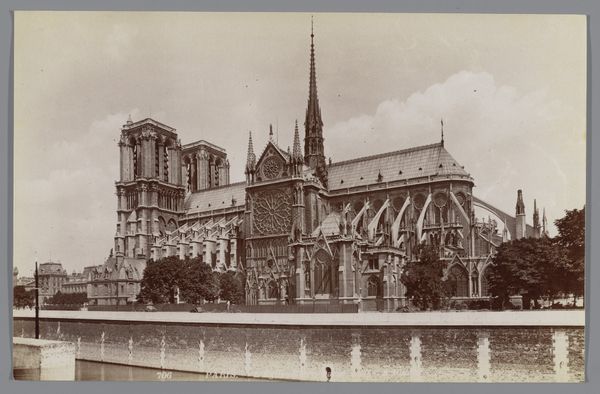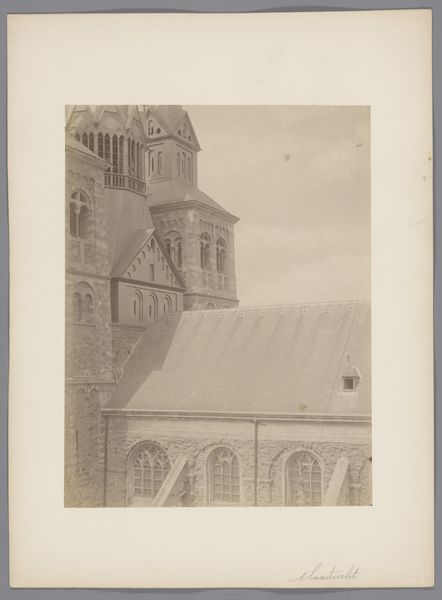
Dimensions: height 84 mm, width 169 mm
Copyright: Rijks Museum: Open Domain
Noël Paul Chapus made this stereoscopic photograph of Notre Dame in Paris using a camera and photographic paper. Photography, while seemingly immediate, relies on a complex interaction of chemistry and optics. In this case, the sepia tone speaks to the albumins used in the printing process. Albumen, derived from egg whites, provided a smooth surface that captured fine details, giving the print its distinctive warm tone and subtle gloss. Look closely, and you’ll notice a slight blur, a testament to the long exposure times required. This wasn’t about quick snapshots but rather about carefully orchestrating a series of material processes – preparing the glass plate, exposing it to light, developing the image, and finally, printing it onto paper. Each step was a dance between the photographer’s skill and the inherent qualities of the materials. Photographs like this one remind us that even seemingly “instant” images are the result of labor-intensive practices and the inherent qualities of materials. By understanding the methods, we gain a deeper appreciation for the artistry involved.
Comments
No comments
Be the first to comment and join the conversation on the ultimate creative platform.
